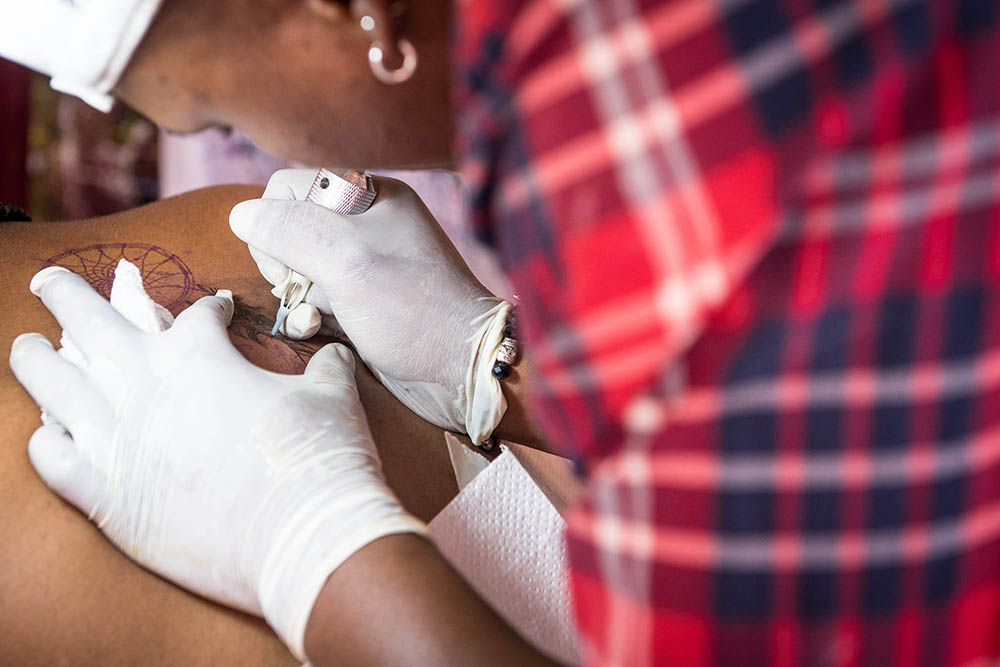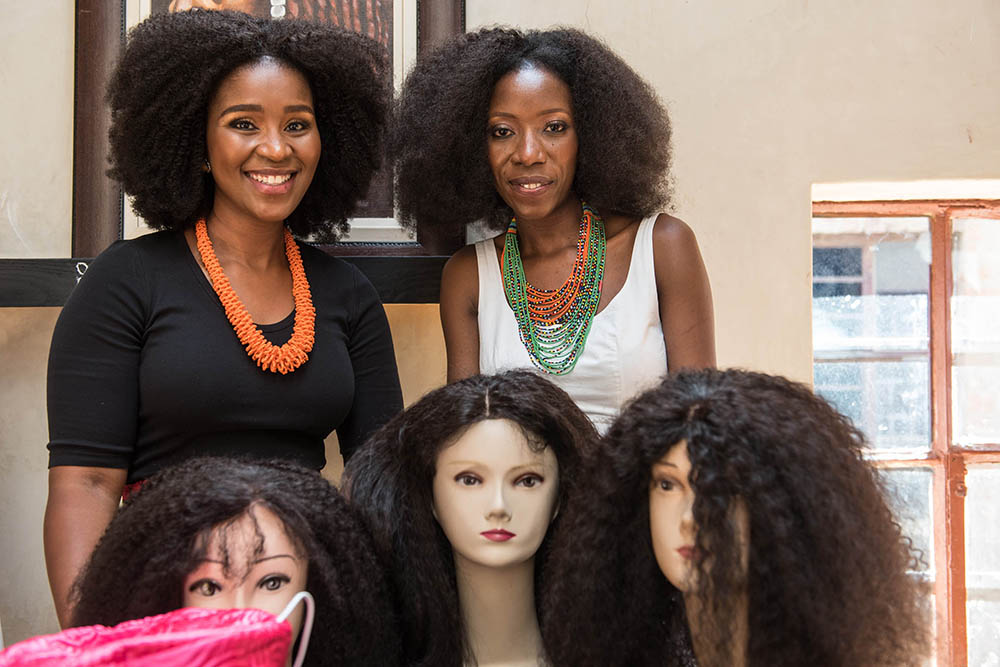History of the Female Entrepreneur Awards (Photo Archive)
Black consciousness is finding a new voice – through funky T-shirts and weaves – as young South Africans take their politics to the world of business.
Small Business Development Minister Lindiwe Zulu regularly speaks about how small businesses can unlock economic opportunities and achieve inclusive growth.
It is not easy to start a business, because of weak bargaining power and marketing muscle; it’s a struggle to attract investors.
Yet, amid the debate over race and colonisation, a growing number of entrepreneurs are reclaiming black pride and creating a black economy that works for them.
Clothing designer Melo Sabali thinks black entrepreneurs must make an effort to invest in other black businesses as a form of empowerment and solidarity.
“I don’t see anything wrong with creating a black-only economy where my hard-earned money is put into another business that faces the same systemic challenges that mine has faced,” she says.
The 24-year-old owner of Mobu Clothing designs and makes African print clothing. “Mobu has taught me that it is fine to be black at all times – I don’t have to tuck away my culture and only pull it out when it is considered appropriate.”
She adds: “Black businesses don’t fail because black entrepreneurs are incapable of running a successful business. They fail because of a lack of support and a failure to understand black people beyond them being consumers.”
Sabali uses social media to attract customers. “There is very little support that a business like mine can get. I had to think of innovative ways to make my business work and social media was the least demanding and most effective.”
She is based in QwaQwa in the Free State, showing that the move to invest in distinctly black business is not confined to the major cities.
Black tats
Nathi Louw’s business ventures have continually led him to defy stereotypes – he is the owner and founder of the Hola Punk tattoo parlour, clothing range and music.
Louw discovered his love for tattoos and rock music in his teens – the way he dressed and the music he listened to differentiated him from other young people in Pimville, Soweto.
“People in my neighbourhood would always greet me by saying: ‘Hola, punk’ to emphasise my style – that is when I started printing the phrase on T-shirts to sell.”

A Hola Punk tattoo artist inks a client. (Photos: Troy Enekvist, M&G)
Louw learned to be a tattoo artist by volunteering to clean tattoo studios in the city in exchange for lessons, which he continued to do until he was certified.
He spends his days making music and using his clients’ bodies as canvases, but Louw still deals with the stereotype that black people can’t be tattoo artists.
“Being a black tattoo artist is still taboo – especially in Soweto – but my people have talents and we shouldn’t be boxed about what we can or cannot do or be.”
Natural hair care
For any black woman with natural hair, finding healthy and safe hair products can be a nightmare. That is why the company, Nubian Nature, was born.
It was not an easy decision for Shereen Makhanye to resign from her job as a sales specialist to develop her natural hair care range into a fully fledged business, but it was a necessary one.
“My business was born from a deeply personal place,” Makhanye says. “In my journey of a return to natural hair – when I stopped using relaxer cream on my head – I realised that not only was this a business opportunity, but a chance for me to create a legacy for my children and other black women.”
Makhanye believes it is important that black people own businesses that meet the needs of other black people. “Intentionally supporting black businesses is an act of consciousness that goes beyond just thinking – it is an active engagement with black empowerment. For me, supporting black businesses is also a political act.”

Caroline Hlahla and Khulile Vilakazi-Ofosu make authentic hair extensions.
But challenges such as gaining access to mainstream retailers have taught her important lessons about running a business that many still consider “alternative”.
Also in the hair business are Caroline Hlahla and Khulile Vilakazi-Ofosu, the brains behind Bounce Essential Hair, a business that makes weaves, wigs and clip-on extensions for Afro-textured hair.
“I was tired of buying hair extensions that didn’t match my natural hair,” says Hlahla.
The owners believe in embracing black hair in its natural state.
“It is so hard to find extensions when you have unrelaxed black hair – most of them are straight and look Eurocentric. But running a business that is unapologetically black can be a problem,” Hlahla adds.
The pair have been looking for funding, but have been told that the local hair market is oversaturated.
“Oversaturated with what?” says Hlahla. “Can we really say it is oversaturated when black women still struggle to find good hair extensions that look like their own hair?”